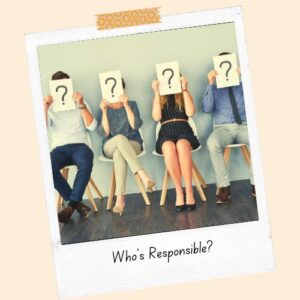I recently listened to a podcast about a man who had 80% of his body burned as a boy by his own father. I imagined how unbearable it would be to live in a disfigured body with such limited mobility; so I was shocked to hear him talk of the happiness and satisfaction he felt in his life. My reaction has a name: Impact Bias.
Research shows we don’t feel as bad as we predict when something goes wrong; nor do we feel as good as we expect when something goes our way.
A social psychologist from Harvard University, Dan Gilbert, revealed how incredibly bad we are in accurately predicting our future emotional states. Essentially, we have no clue on what will make us happy or sad in the the long run.
When thinking about the possibility of negative events (ie. becoming paralyzed, losing our home, etc.) we typically imagine experiencing such things would be unbearable and devastating. But what researchers actually find is that six months after actually suffering such an event happiness levels are nearly identical to the day before the event.
Other interesting research outcomes on the impact bias found that two months after a relationship breakup people are not as unhappy as they had expected and sports fans are generally not as happy as they’d predicted when their team wins.
We overestimate the initial emotional intensity of our reaction to events and how long we’ll feel the positive or negative effects.
Through his research, Gilbert found that facing extreme and inescapable situations triggers a brain response that actually increases positivity and happiness. This is what Gilbert calls our “psychological immune system.” It seems when faced with intense and inescapable traumatic events, our brain activates a positive reframing effect.
Interestingly, this effect works similarly with extremely positive events. For example, how do you predict you’d feel if you won the lottery? Most of us assume it would make us significantly happier, more carefree and secure. But research has found just the opposite.
In a famous study conducted at Northwestern University in 1978 research revealed that happiness levels of paraplegics and *lottery winners were essentially the same within a year after the event occurred.
Why does this happen?
One reason is that we tend to focus on what will change and ignore all the things that won’t. Using the lottery win example, we’re more likely to focus on and overestimate ways the money will change our life for the better and ignore the majority of our human existence that will remain more or less the same. Or with a negative event like losing a leg, we focus on all the ways it will change us without considering other experiences of life that will still be there.
The takeaway here is that things are never as good or as bad as we imagine they will be and pretty much anything that happened a few months ago has no effect on our current levels of happiness.
This has been an important awareness for me and one I often share with clients. There are often places where we’re avoiding or hiding in our lives, afraid to take risks or make decisions because of thought errors driven by the Impact Bias. We misjudge anticipated long-term negative consequences of what we do or throw ourselves under the bus trying to attain a goal we think will make us happier than it actually does.
Here are some prompts to explore where the impact bias may be operating behind the scenes in your life:
Where are you avoiding things because of a possible predictive error?Where are you pursuing things believing they will offer a false sustained reward?
- If you want to find out more about what happens to people after they win the lottery, check out this article



